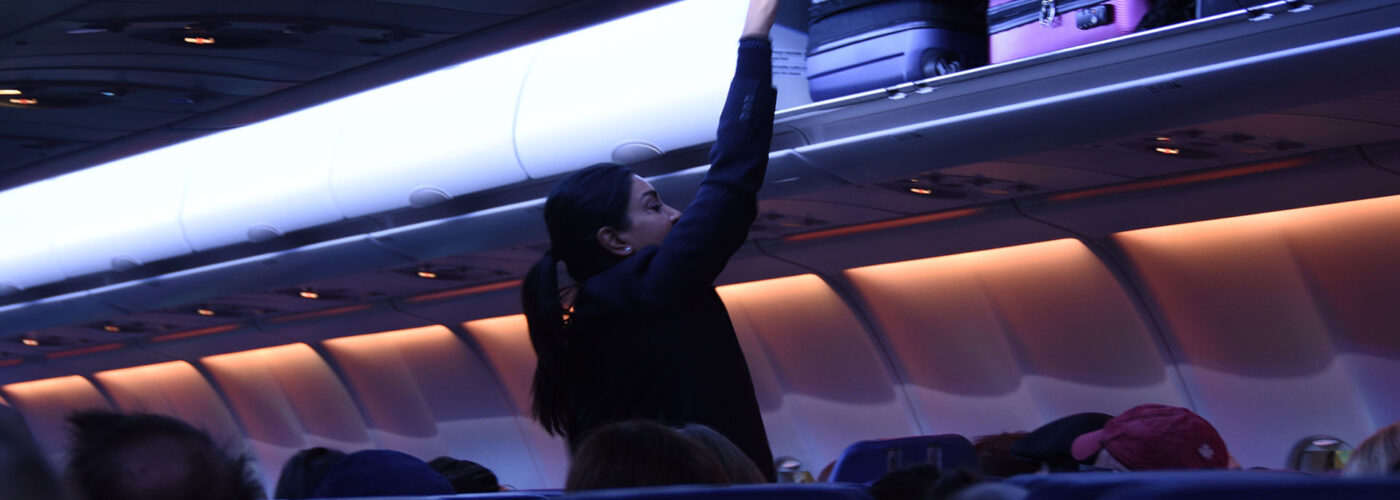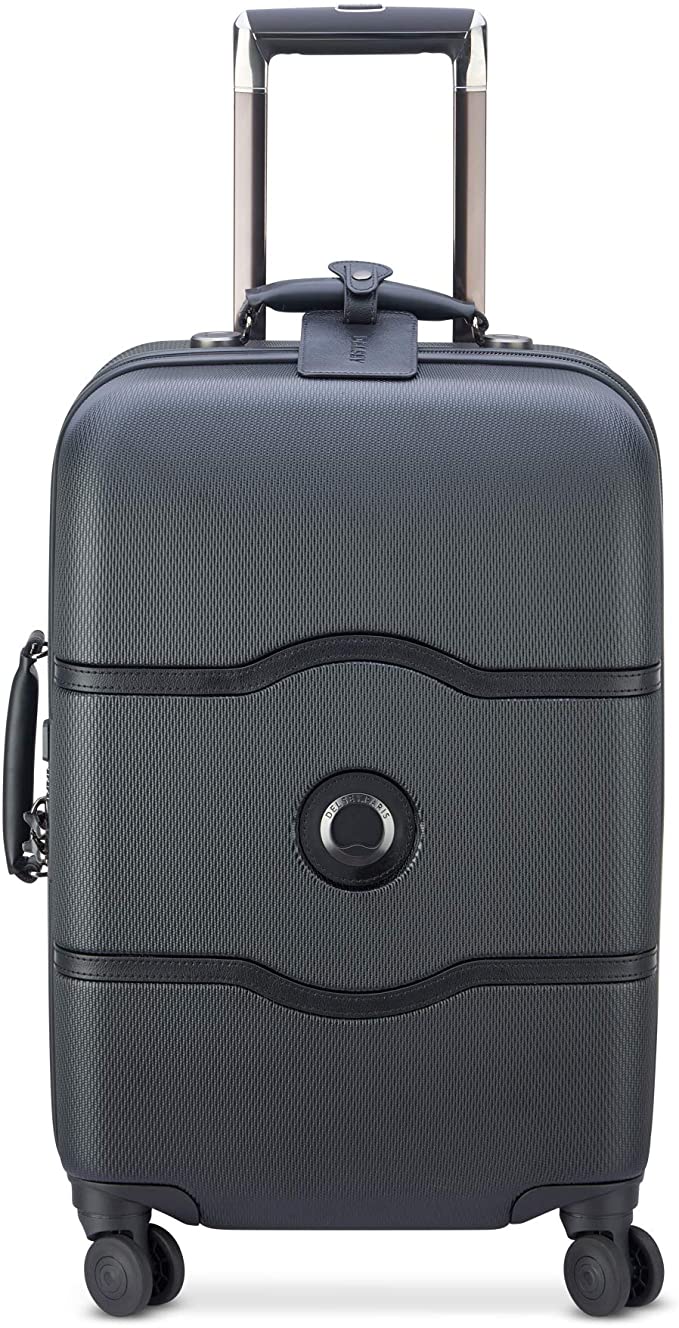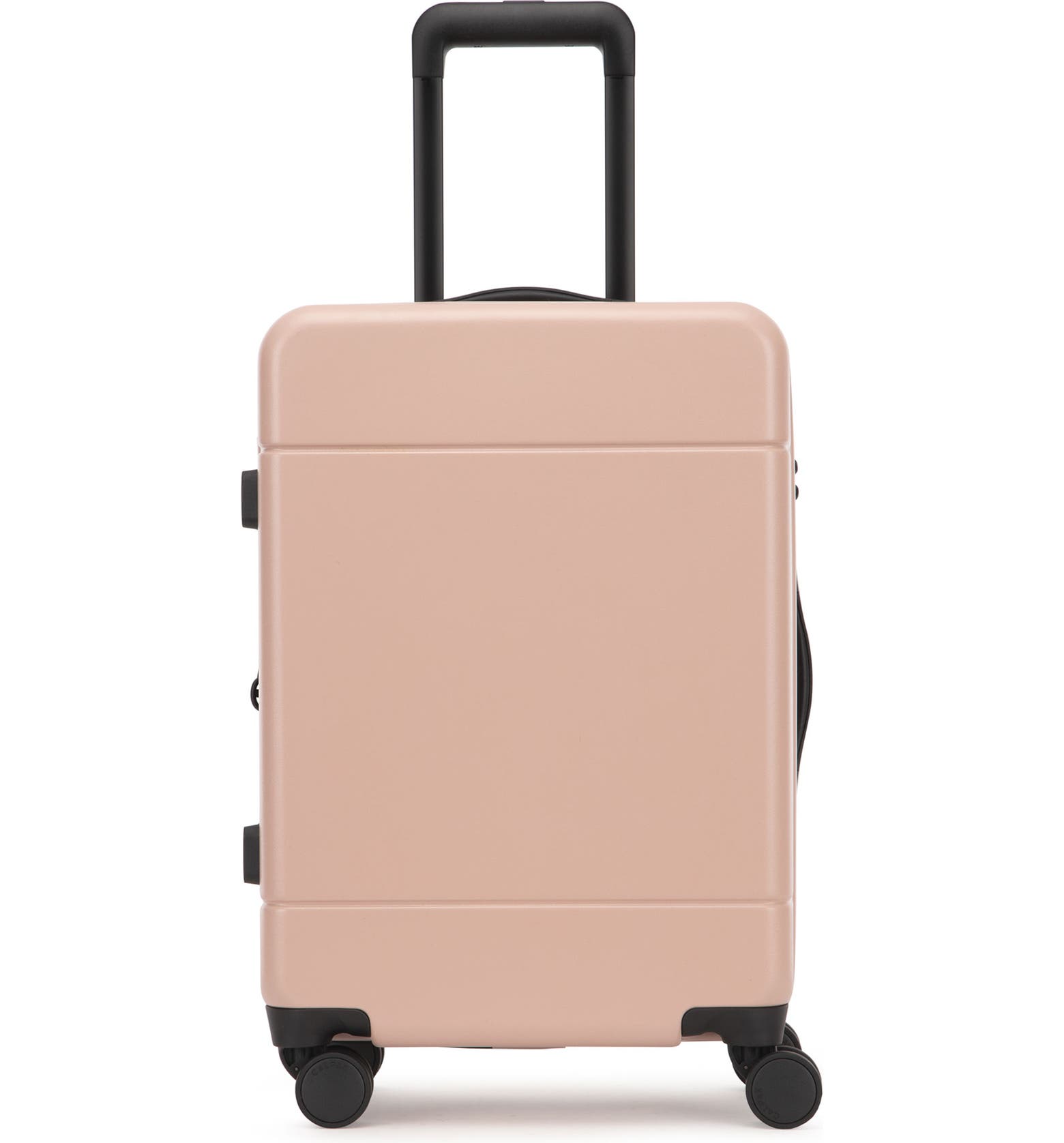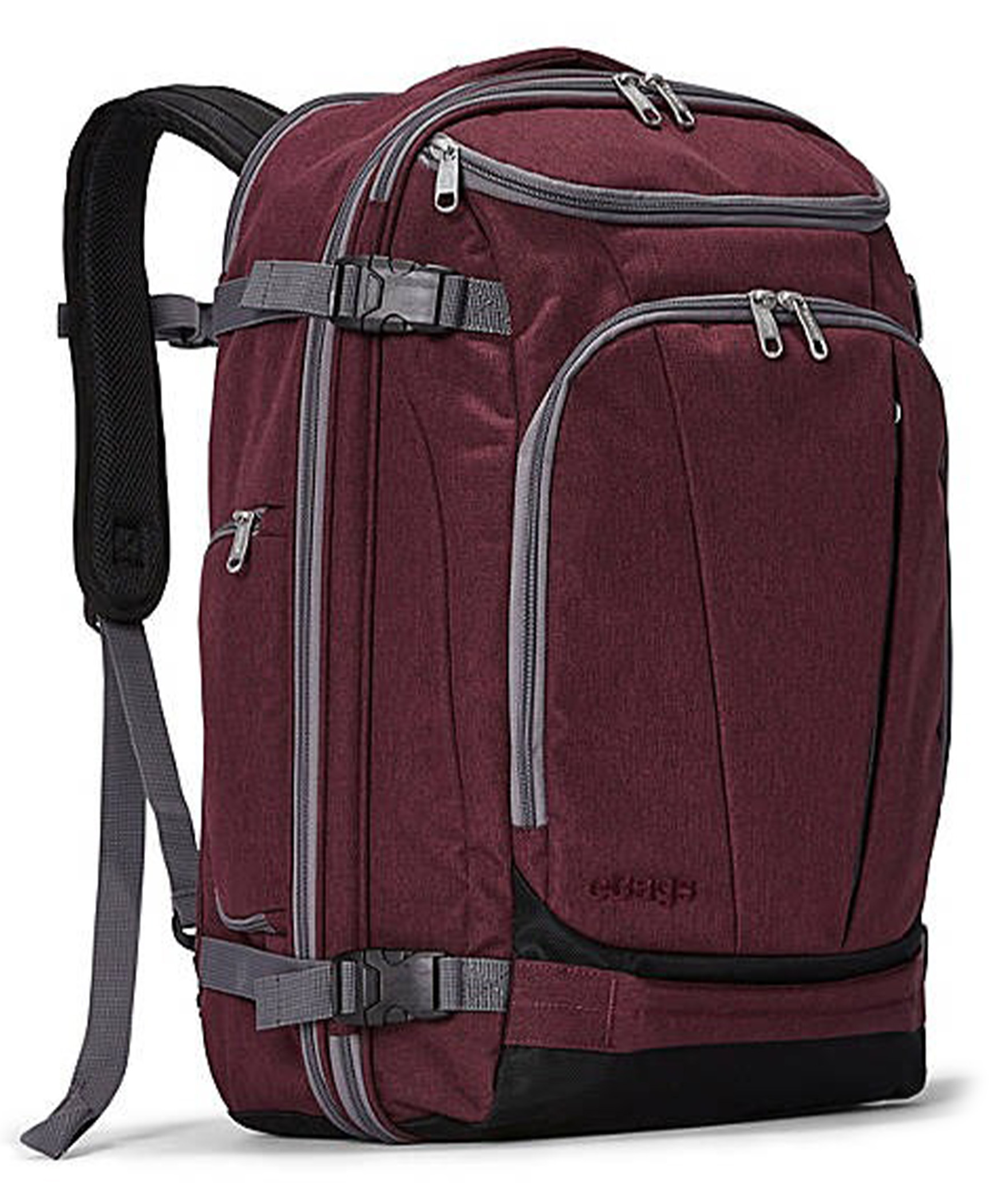No one who knows how to be a great airplane passenger better than—you guessed it—flight attendants. Which is why we decided to pick their brains for their hard-earned wisdom about how to be a better, smarter traveler. Our panel of experts graciously spilled their flight attendant secrets, revealing insider advice that can help you get upgraded, combat jet lag, and fly smoothly with kids.
They also clued us in as to what it’s really like to be a flight attendant, what to wear on a flight, how to avoid germs on a plane, how to deal with fear of flying, and which food and drinks you should order—and which to avoid. Perhaps most importantly, they spoke about how to fly with a degree of civility that’s sorely lacking in society these days.
Flight Attendants’ Best Tips for Better Flights
Simply put, manners matter. “People who actually speak to me when I ask them what they’d like to drink is beginning to become a thing of the past,” says Heather Poole, who has worked for a major U.S. carrier for 20 years and who wrote a bestseller called Cruising Attitude: Tales of Crashpads, Crew Drama, and Crazy Passengers at 35,000 Feet. “So when a passenger says please and thank you to me, I want to give them more water and extra snacks. If I see a passenger helping another passenger with luggage, I instantly think, ‘What a catch!’ and want to set them up with single friends because nice people are hard to find. Honestly, it’s the little things that make a difference.”
Jennifer “Jaki” Johnson has been a flight attendant for six years and is the founder of Jetsetter Chic, a travel-lifestyle subscription box company. Her preboarding advice to set the tone for a better flight? Check in early, watch to make sure your gate doesn’t change, eat a healthy snack or meal at the gate, use the restroom at the airport rather than waiting until you’re on the plane, and smile at your flight attendants when boarding.
How Passengers Can Boost Their Chances of an Upgrade
Many airlines prohibit arbitrarily upgrading passengers who are already on the plane. “This is a firm rule,” says Coral Lee, who has been a flight attendant and cabin manager for more than a decade and runs a blog for flight attendants called These Gold Wings, “although you can always try. Ask politely if there are any available seats in business class or premium. You’ve got better chances if you’re dressed nicely, if the flight isn’t full, if you’re traveling solo, and if you board last.”
“Upgrades are a big deal, and people who fly a lot earn frequent flyer miles,” explains Poole. “Those people know exactly where their name is on the upgrade list. If someone cuts in front of them, they’ll flip out. On one of my flights, we were delayed 20 minutes because one frequent flyer was upgraded to business class before another frequent flyer whose name should have been called first. Delays are a big deal in the airline world, so it’s crazy when we take a delay for something like an upgrade. But it happens because nobody cuts the line. You can dress nicely to increase your odds of getting upgraded if there’s nobody on the list. But that list is usually long.”
Keep in mind that this should be a conversation with a gate agent, not a flight attendant. “Once you step onto the aircraft, it’s our responsibility to get you where you’re going safely and comfortably,” says Nichole Dunst, a flight attendant and travel blogger who created Conscious City Guides, “but we’re not responsible for awarding upgrades. The gate agents have their own system for working upgrades, and gone are the days of getting an upgrade just because you’re cute and you brought us Starbucks. If you haven’t been awarded an upgrade before scanning onboard, I’m sorry to say it, but you probably didn’t make the cut.”
Of course, the most straightforward way to get an upgrade on your flight is to buy one. “Traveling is expensive, so you pay for service and quality,” Johnson points out. “You get what you pay for, so pay for what you want.”
Tipping Flight Attendants: Yes or No?
Flight attendants don’t expect cash tips, in part because they earn above-average wages and because their role of assuring safety is considered more important than their role of providing service.
In fact, most American and European airlines don’t even allow flight attendants to accept tips—except for Frontier, which has recently changed its tipping policy to allow flight attendants to keep gratuities; Frontier passengers are now prompted to add 15, 20, or 25 percent to their credit card charge after ordering a drink or snack. “But far from helping,” Lee says, “this has created a big controversy between the flight attendants who are happy with this new policy and the ones who think that this is a strategy to keep wages low and be treated like servants and not like someone who might save you in an emergency.”
“However,” Dunst advises, “we do love getting tipped in snacks, and that happens pretty frequently. If you’re headed to duty-free before your flight, picking up a bag of candy for your flight crew is a great way to make friends with us.” Another way to thank a flight attendant for a job well done? Write a letter to the airline that mentions the flight attendant’s name and outstanding service.
How Do Flight Attendants Deal with Jet Lag?
Flight attendants know better than almost anyone how to deal with jet lag: They drink plenty of water before and during the flight. They nap before and after long, time-zone-crossing flights. They avoid alcohol; many rely on melatonin instead if they need help falling asleep. And they try to adapt to their new time zone as quickly as possible. “Don’t even think about what time it is back home,” advises Dunst.
The Craziest Things Flight Attendants See on the Job
Flight attendants see some truly wacky—and disturbing—behaviors. “The list is never-ending,” says Poole. “Just when I think I’ve seen it all, something else bizarre will happen.
“People who don’t work for an airline seem to be most amused by naked passenger stories,” she goes on. “For me, the weirdest stories involve passengers stealing a coworker’s uniform blazer or chicken strips off a flight attendant’s salad. My coworker found his blazer standing in line at security, and the chicken strips were found clutched in the fist of a passenger sitting in the exit row.”
“My tolerance for crazy has certainly elevated over the years,” Dunst agrees, “and I have to remind myself that we see people in their most stressed-out state.” Dunst once had a passenger get so enraged with the flight crew for refusing to serve her alcohol during the airplane’s initial ascent—when the seat belt sign was still on—that she spent the next five hours harassing the flight attendants, taking pictures of and tweeting about them. “I don’t think this particular woman was in her right mind,” Dunst recalls, “and that can be a little scary when you’re at 30,000 feet.”
As for Lee, she cites medical emergencies—people fainting or having seizures—as well as people clipping their toenails in their seats or getting furious when they get caught smoking in the lavatory instead of being sorry. Also: an adult woman urinating on the floor after being told she couldn’t use the restroom.
How to Keep from Getting Sick on a Plane
Getting sick on airplanes can be par for the course when you’re a frequent flyer. This is partly because of all that circulated air, and also because being on a flight means being in close proximity to dozens of people—and their germs—for an extended period.
But getting sick on your next flight doesn’t have to be a foregone conclusion. To protect yourself from getting sick on a plane, follow flight attendants’ advice: Bring sanitizing wipes and use them to wipe down your seat, tray table (Poole sees parents change babies’ diapers on them), entertainment screen, and remote control. Also: Drink water. Take immune-boosting vitamins. Don’t touch your face, and don’t request drinks while the crew is picking up trash—their hands are now germy. Shower as soon as you get where you’re going, or at least change your clothes.
“Something I wish was more mainstream in the U.S.,” Dunst says, “are mouth masks like you typically see in Asian cultures. If you’re sick, it’s just a basic courtesy to prevent everyone around you from getting sick as well.”
As for airplane lavatories, they’re practically petri dishes and, like the tray tables, they don’t always get thoroughly cleaned. So don’t touch much in there—use a paper towel to open and shut the lid, to flush, and to use the door handle. Never sit directly on the toilet seat, never go in there barefoot or with just socks on, and always wash your hands well with soap.
What Passengers Should Bring Onboard
The flight attendants we interviewed recommend a light blanket, a neck pillow, an eye mask (if you’re hoping to sleep), earplugs, socks—and a good book, since it’s not uncommon for the in-flight screens or Wi-Fi to be out of order.
What Flight Attendants Want Passengers to Know
It irks flight attendants when passengers assume that they don’t have college degrees and that their previous careers were as bartenders. “My background is in radio and I hold a master’s degree from an Ivy League institution,” Johnson says. “Other flight attendants have been lawyers, medical students, real estate agents, and so much more. We want passengers to know that we are more than our uniform.”
Flight attendants also want passengers to know that the flight crew doesn’t get paid on the ground. “So that flight attendant greeting you at the boarding door? Not being paid,” says Poole. “Delays? Not being paid. We aren’t paid until the boarding door is closed and the brakes are released.”
This means that delays and cancellations can affect flight attendants dearly—not only are they not paid when flights are canceled or when they’re waiting for a delay to lift, but, as Poole puts it, “When flight schedules get screwed up, we have to make arrangements for children or family and we miss things we were excited to do. I’ve had passengers yell at me, ‘I haven’t seen my baby in three days!’ A lot of flight crew have babies too.”
Travelers should keep in mind that flight attendants aren’t getting paid during the boarding process, which is a flight’s most hectic time. During boarding, Poole says, “We have a lot to do with very little help, so we might seem a little snippy or rude but really, we’re stressing out to get things done so that a delay can’t get pinned on us. The problem is that boarding sets the tone, so then when we have time to relax and smile and be nice, the perfect flight attendant, passengers don’t notice because they’re mad that we took their bag to check it or that we didn’t answer their question or we didn’t allow them to use the bathroom or that they weren’t catered to. Nobody wonders why. They just think we’re rude and then they go and tweet about it.”
Dunst raises another point that airplane passengers don’t always seem to realize: “There’s a reason we ask you to keep your seat belts fastened whenever you’re in your seats. Turbulence can come out of nowhere, and you can never be too safe. That being said, the same goes for us. If the captain has asked us to take our jump seats for our safety, then no, we cannot get up to pour you a ginger ale. Unfortunately, getting injured on the job is almost inevitable. All it takes is one air pocket to jolt us around. We of course want to take care of you as best we can, but safety truly does come first—not your third gin and tonic.”
Flight Attendant Tips and Tricks for Fearful Flyers
Aviophobia is the most common phobia in the U.S., affecting 6.5 percent of the population, while many more Americans—almost one in three—have an anxiety or fear of flying that isn’t quite severe enough to be formally diagnosed as a phobia.
Given these statistics, flight attendants are accustomed to attending to nervous flyers. Their biggest recommendation? Loop them in. “Tell the flight crew that you’re a nervous flyer so that they can keep you informed of what to expect regarding turbulence, or be there for you if it does get bumpy and you’re scared,” Poole says. “I always tell fearful flyers when it’s going to be bumpy and for how long, so that they have a sense of control. I also ask them if they’re OK or let them know that it’s going to be fine when we hit a little turbulence.”
To help cope with fear of flying, flight attendants recommend doing mindfulness and breathing exercises, downloading an app like MyRadar to track weather and turbulence, playing games on your device to keep yourself distracted, and to take any appropriate medications. “If you need to take something to calm your nerves, we’re not going to judge you,” says Dunst. “But please don’t mix pills with alcohol. I promise it will just create more problems.”
The Best Food and Drink to Have in Flight
Flight attendants are unanimous about the best drink to order on an airplane: water. That’s because dehydration is a real risk onboard.
They advise against carbonated drinks “because your intestinal gas will expand and you’ll feel bloated, heavy, or become distended,” says Lee. They also warn against too much alcohol because it reduces your body’s ability to absorb oxygen, which can cause lightheadedness at high altitudes. Alcohol will also dehydrate you and make you feel more tired than you should.
“In my book, I wrote that Diet Coke was the worst drink for flight attendants to pour because it takes so long for the fizz to go down,” Poole says. “Nobody wishes you’d stop ordering it, but when passengers do order it, I’ll probably hand them a can because it’s faster and also because Diet Coke drinkers are addicted to Diet Coke and it’s impossible to keep up with them. One time I had a somewhat famous politician onboard who drank six Diet Cokes on a two-hour flight. Six. Diet. Cokes. Not only does it take forever to pour, you’re constantly pouring.”
And food? “As long as it’s not going to stink up the whole cabin, bring whatever you want,” says Dunst, who adds that flight attendants prefer that passengers bring their own food because the flight crew sometimes runs out of food or may not have your first-choice meal available by the time they get to your row: “It’s good to always have something nutritious and calorie-dense, like mixed nuts or protein bars, on hand in case of hangry emergencies.”
“The worst food to bring on a plane is food that gives off strong smells,” Lee agrees. “Remember that you’ll be sitting for many hours in a small, closed space with a lot of people. If you don’t want your neighbors to hate you, don’t bring strong cheeses or any kind of fish, eggs, or strongly spiced foods.”
Tips for Bringing Children on a Plane
“I used to travel during my son’s nap time so that he’d be more likely to fall asleep,” Poole recalls, “and I’d spend the morning letting him run around so he wouldn’t be as restless.”
Indeed, flight attendants are a font of knowledge about how to take your kids on a plane. Those we interviewed supplied us with a helpful set of tips: Pack plenty of food, snacks, wipes, and diapers. Always have a change of clothes. (“My cousin once had her four-year-old daughter get sick in flight and throw up all over herself, and didn’t have an extra outfit to change her into,” Dunst relates.)
Don’t forget your children’s official documents either, including passports, birth certificates, and visas. Stash stuff to keep your kids occupied: toys, workbooks, stickers, tablets. Bring a compact stroller that fits in the overhead compartment.
Dress your kids in layers, since temperatures can change drastically on a plane. Feed and change them before boarding, if possible. Fly direct when you can, since delays, diversions, and cancellations happen. “Reward them with little prizes during the flight for every hour they’re well behaved,” suggests Poole.
If you’re breastfeeding, know that you’re allowed to bring breast milk onboard, so pack extra bottles. And remember that families with young children get priority boarding, so you won’t need to stand in the same line as everyone else. When checking in, make sure that you’ll be seated next to your children; if not, a gate agent should be able to fix that.
Educate your children about how to act on a plane: “They should listen to what the flight attendants say and treat other passengers with respect,” says Lee. “From the youngest ages, they should be taught to behave politely and respectfully.”
Finally—and this should be needless to say—it’s your responsibility as a parent to stay alert and responsible for your child. “I’ve seen parents fall asleep and ignore kids, or book seats in first and leave kids in coach,” Poole says. “One time I was traveling as a passenger and found an infant crawling between my ankles. The mother was sleeping behind me.”
What to Wear During a Flight
“Airplanes are cold, so come prepared to be freezing,” Poole says. “Exit rows are the coldest rows. Invest in a cashmere sweater so you’ll look nice and be warm. If you don’t need to wear it, roll it up and use it as lumbar support. Wear shoes. Real shoes. So if you have to evacuate, you can run faster from the burning plane.”
In general, flight attendants recommend comfortable, well-put-together outfits that you can layer: “Nothing constricting, especially for a long-haul flight,” says Lee. “And to get through airport security faster, don’t wear too many metal accessories.”
How to Treat Flight Attendants
When you’re traveling a long way, basic etiquette can go a long way, too.
“Saying please and thank you while making eye contact at the same time is almost unheard of today,” says Poole. “Does it surprise you to learn that most passengers don’t even acknowledge my greeting when they’re boarding? After a while, I get tired of talking to myself. I always remember the nice passengers.”
“Truly, a little bit of kindness goes a long way,” Dunst agrees. “A simple smile and ‘How is your day going?’ can make all the difference.”
More from SmarterTravel:
- The 12 Best Flight Search Sites for Booking Cheap Airfare
- The One Thing You Need to Do on Red-Eye Flights
- 10 Underseat Carry-on Bags You Can Take on Any Flight
Follow Avital Andrews on Twitter @avitalb or on Facebook.
We hand-pick everything we recommend and select items through testing and reviews. Some products are sent to us free of charge with no incentive to offer a favorable review. We offer our unbiased opinions and do not accept compensation to review products. All items are in stock and prices are accurate at the time of publication. If you buy something through our links, we may earn a commission.
Related
Top Fares From
Today's Top Travel Deals
Brought to you by ShermansTravel
Peru: 8-Night Trip, Incl. Machu Picchu...
Great Value Vacations
 vacation
$2083+
vacation
$2083+
15-Night Transatlantic Cruise from New York...
Norwegian Cruise Line
 cruise
$928+
cruise
$928+
Shop and Save with Country Inns...
Patricia Magaña
 Hotel & Lodging Deals
Hotel & Lodging Deals









